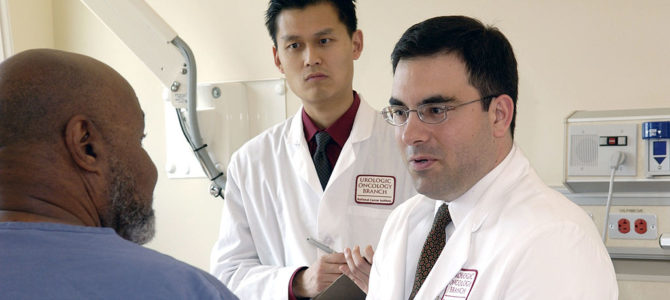
Over Fourth of July week, liberal activists took solace in the results of a poll that they said demonstrates the popularity of a single-payer health system. The survey showed diminished support for a “‘Medicare for All’ [system] if it diminished the role of private insurers.” However, support rose by nearly ten points if pollsters described single payer as a system that “diminished the role of private insurers but allowed you to keep your preferred doctor and hospital.”
Staff for Sen. Bernie Sanders (I-VT) claimed the survey showed single payer “is wildly popular when you tell people what it would actually do.” That claim misses the mark on several levels. First, most individuals wouldn’t consider a 55 percent approval rating—the level of support for a single-payer plan that allows patients to keep their doctors—as evidence of a “wildly popular,” as opposed to mildly popular, policy.
Second, the survey described the plan as “Medicare for All.” In reality, however, Sanders’ bill would abolish the existing Medicare program entirely, making it “Medicare for None.” In repeating the left’s false claims about single payer, the pollsters biased the survey in favor of Sanders’ proposal, not against it.
More fundamentally, though, single payer has precious little to do with keeping one’s doctor:
What does #SinglePayer have to do with letting people keep their doctors? Precious little. More work and less pay means many doctors would leave the profession, making this yet another false pledge… https://t.co/i00NaAvAIh
— Chris Jacobs (@chrisjacobsHC) July 2, 2019
For at least three reasons, many patients will lose access to their preferred physicians and hospitals under a single-payer system.
‘Free Care’ Means People Will Demand More
The overall level of medical services demanded under single payer will rise, for several reasons. First, the legislation would expand the number of individuals covered to include, as we have seen recently, individuals present in the United States illegally. Based on the current language of the Sanders bill, single payer could also encourage “benefit tourism,” whereby foreign nationals travel to the United States to receive taxpayer-subsidized health care.
Second, the Sanders legislation would virtually eliminate medical cost-sharing—deductibles, co-payments, and the like. As a result, individuals who currently have health insurance would use more care once it becomes “free.”
In their analysis of single-payer legislation, both the Rand Corporation and the liberal Urban Institute have estimated that induced demand would result in capacity constraints for health care supply. In other words, so many more people would clamor for “free” care that the system would not have enough doctors or facilities to treat them.
More Work, Less Pay
As I noted last year, single-payer supporters operate under the fanciful premise that doctors and hospitals will perform more procedures for less money. Nearly three-quarters of hospitals already lose money on their Medicare patients—and single payer would extend those Medicare reimbursement rates to all patients nationwide. A study earlier this year in the Journal of the American Medical Association (JAMA) concluded that a single-payer system linked to Medicare payment levels would reduce hospitals’ revenue by $151 billion annually.
Some might argue that medical providers can afford reimbursement reductions. But while most doctors do indeed command large salaries, they also struggle with large student debts. Nearly three-quarters of graduating physicians took on loans to pay for medical school; the median amount of debt stood at $195,000. Just as hospitals could not afford to absorb large reimbursement cuts without unintended consequences—up to 1.5 million job losses, according to the JAMA survey—so too physicians could suffer economically under single payer.
More Soul-Crushing Regulations
The federal government has already caused physicians countless hours of paperwork and grief. Thanks to requirements regarding electronic health records introduced in President Obama’s “stimulus,” an emergency room physician makes an average of 4,000 clicks in one shift. Rather than practicing their craft and healing patients, physicians have become button-clicking automatons, forced to respond to Washington’s every whim and demand.
The combination of more work, less pay, and added government intrusion under single payer could cause many physicians to leave the profession. For instance, the electronic records requirements caused my mother’s longtime physician to retire—he didn’t want to spend all his time staring at a computer screen (and who can blame him).
Some physicians could instead eschew the single-payer route, offering their services on a cash basis to wealthy patients who can afford to opt-out of the government system (provided the government will permit them to do so). Still other individuals may make alternative career plans, abandoning medicine even before they begin their formal training.
Sometimes, the more things change, the more they stay the same. Ten years ago, President Obama and his administration promised that if you liked your doctor, you could keep your doctor. That promised proved no more accurate than his infamous “If you like your plan, you can keep it” pledge.
Here’s hoping that the American people never get an opportunity to discover the fanciful nature of Sanders’s promise that you can keep your doctor and hospital under single payer.









